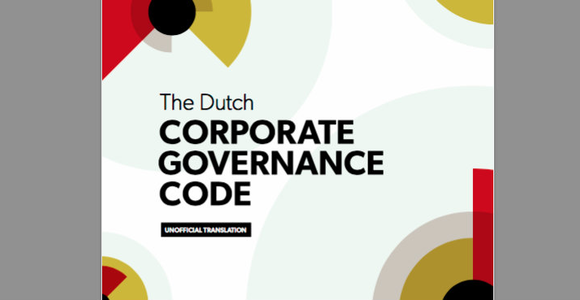The interim report presents recommendations on directing investments that support sustainable projects. More importantly, the Group explores how to transform the financial system into a more sustainable one, including potential reforms of the governance of financial institutions and public corporations.
Filip Gregor, Head of Responsible Companies at Frank Bold, welcomes the work of the Group and emphasises in particular the recognition of the need to rethink the corporate governance principles for both financial actors and public corporations. We highlight the importance of three major points brought up in the HLEG interim report:
- The reflection of end beneficiaries’ interests and, as a part of it, the integration of ESG factors and sustainability in investors’ fiduciary duties;
- The promotion of integrated reporting and the reinforcement of transparency on ESG issues;
- The definition of European directors’ duties incorporating long-term sustainable value-creation.
The Group noted the pressure of capital markets to maximise short-term returns which prevents investors and public listed companies to properly consider strategy, risks and opportunities. As the report indicates, “there is no single parameter that could switch off ‘short-termism’ and move finance to the long term” but progress can be made through:
- A continued emphasis by policy-makers on long-term finance;
- A review of regulation and market practices to foster long-term decision-making (see below); and
- The protection of those who take long-term investment decisions in the face of short-term pressures from financial markets.
Investors and companies are equally concerned when it comes to the causes and effects of short-termism. Yet, as the report recognises, “the time horizon in finance is typically much shorter than the time horizon needed to address society’s pressing challenges; and the conception of risk in finance is typically much narrower than one that effectively captures economic, social and environmental sustainability”.
Therefore, any solution to short-termism must, in addition to expanding and broadening the investor’s horizon, recognise that companies need to be protected from the pressure to maximise short-term shareholder value. Corporate governance policies must encourage companies to focus on sustainable long-term strategies. This is only possible if the policy is built on the recognition that shareholders do not run or own companies. The law recognises that directors’ duties are owed to the company, rather than shareholders, a point confirmed by a recent study funded by the European Commission. Relying solely on responsible investors would be at best, ineffective, and at worst, inadvertently increase the pressure on companies from capital markets to focus on the short term.
On the capital markets side, we consider the recommendation of the Group to focus on the interests of end beneficiaries highly positive, especially in the context of the fiduciary duties of institutional investors.
The High Level Expert Group recommends a number of reforms in several areas ranging from green bonds and operations across financial institutions and other players in the system to the governance of both financial corporations and listed companies.
Overall the recommendations of the Group on corporate governance are aligned with the findings of a two-year global roundtable series on corporate governance hosted by Frank Bold in partnership with Cass Business School and leading law and business schools in Europe and the U.S. These series of events and the research emanating from it resulted in the publication of a report outlining the desired outcomes and key principles for a new model of corporate governance focused on long-term sustainable value.
The main corporate governance-related recommendations of the High Level Expert Group include:
1. The establishment of a single set of principles of fiduciary duty and related concepts of loyalty and prudence. The HLEG recommends that the European Commission:
- Clarifies in upcoming legislation or regulatory reviews that the duties of loyalty and prudence explicitly integrate material ESG factors and long-term sustainability.
- Provides clarifications on the mandates of the relevant supervisory authorities to make sure that the above considerations are duly taken into account.
- Displays global leadership by promoting a common interpretation of fiduciary duty at the international level, including via an OECD convention on fiduciary duty.
2. Strengthen the disclosure of material information on sustainability issues by firms and financial institutions which can also be reflected in stock exchange rules and benchmarks. The HLEG recommends that:
- The EU should support further work on methodology and frameworks to help firms and financial institutions improve their ESG disclosures, and promote harmonisation of metrics.
- Financial institutions should disclose how relevant sustainability information is effectively factored into the way that the money of clients and beneficiaries is invested (for example, through mechanisms as those reflected in recent French legislation – Energy Transition Law, Article 173), including sustainability policies and targets, voting and engagement.
- Firms and financial institutions should improve their transparency on climate change aspects. In line with the TCFD recommendations (..), the disclosure rules should be principle-based and leave room for flexibility and innovation across four key elements: governance; strategy; risk management; and metrics and targets. Forward-looking information such as relevant climate scenario analysis should be encouraged, in particular for very large firms in sectors directly affected by the energy transition, such as fossil fuels, utilities, extractives, energy-intensive industries and transport.
3. With regards to improving the governance of firms and financial institutions, the HLEG group recommends: (a) developing and promulgating a set of principles of corporate governance and stewardship that incorporate long-term and sustainable value creation; and (b) improving investor governance. The interim report includes the following suggestions:
- Defining European directors’ duties that incorporate value creation for the long-term and sustainability.
- Developing a set of European corporate governance principles that address long-term value creation and sustainability; and reviewing the potential to incorporate long-term value creation and sustainability as part of the incentive framework in regulated industries.
- Developing a set of European stewardship principles (building on established principles) that incorporate active ownership and long-term value creation.
- Requiring consultation with clients and beneficiaries about their ESG preferences.
Next steps
The European Commission will host a public hearing on Tuesday 18 July in which stakeholders can provide feedback on the HLEG interim report and suggest possible solutions in order to establish a more sustainable finance system. The hearing and following public consultation will provide an opportunity to encourage the HLEG to address several unresolved issues in its final report, including:
- A missing definition of sustainability which is indispensable for developing effective policies. This definition should build upon the concepts of social and planetary boundaries and relevant international agreements such as the Paris Agreement on Climate Change and international human rights law contextualised in the UN Guiding Principles for Business and Human Rights. Building upon this definition, the final HLEG recommendations should provide more clarity on the design of non-financial and integrated reporting, as well as disclosure requirements and other relevant policy recommendations. In the reporting context, the examples of benchmarks such as Future Fit Business Benchmark may provide useful inspiration.
- Due consideration of a strategy to contain the risk of an over-reliance on capital markets as the main mechanism for financing investments as opposed to retained earnings and bank financing. Similarly, an over-reliance on the role of shareholders with regard to the design of corporate governance increases the pressure on company managers to put the interests of shareholders first. This, in turn, leads to narrowing corporate strategy to manage share price in the short-term and prevents proper considerations of the principles of sustainability. Therefore, it would be desirable to clarify the key principles and desired outcomes of corporate governance and reflect them in the definitions of European directors’ duties. Our report “Corporate Governance for a Changing World” provides further guidance on how this can be achieved.
Commentary prepared by Filip Gregor, Head of Responsible Companies Section at Frank Bold with the support of Dr. Jeroen Veldman, who runs the Modern Corporation Project at Cass Business School, London.


















